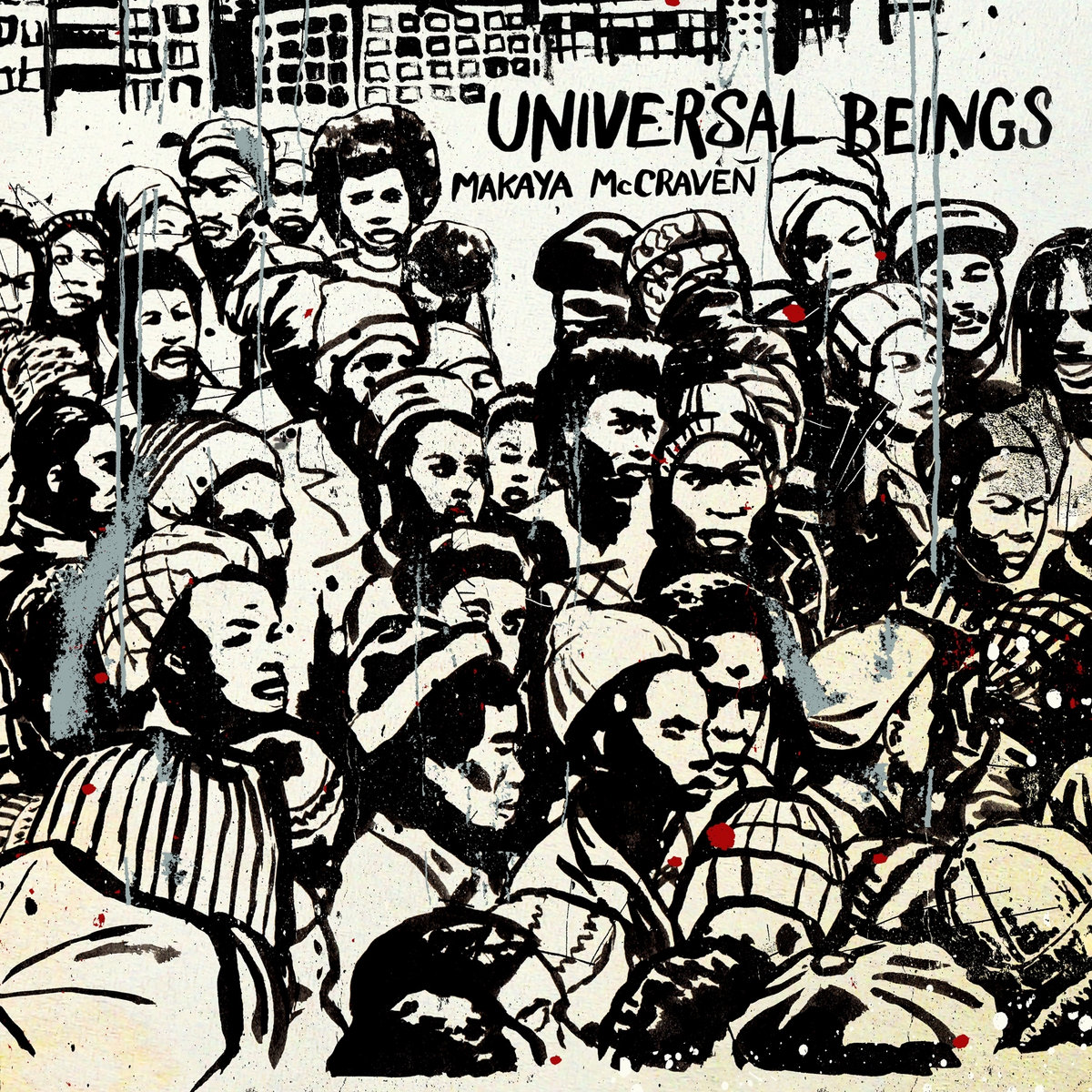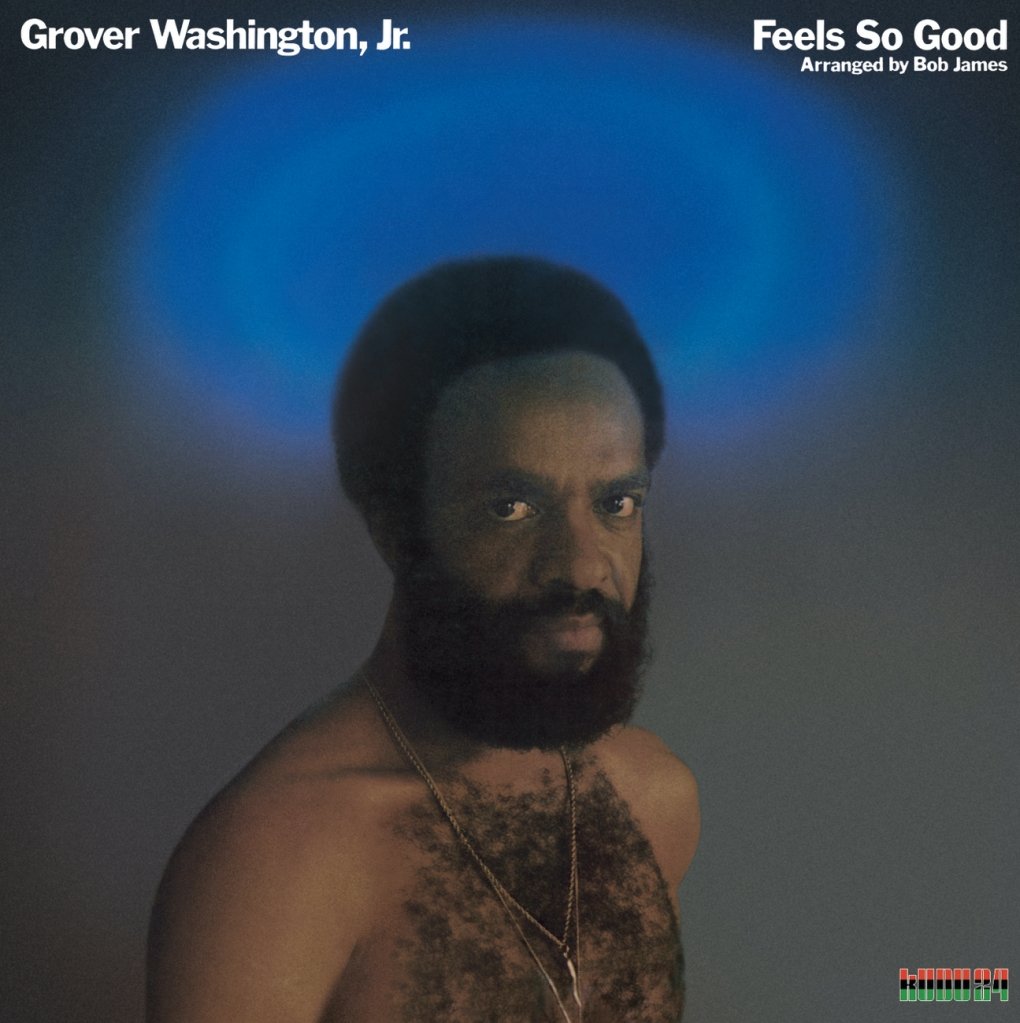
On heavy repeat at the moment: Universal Beings, from 2018, is Makaya McCraven's fifth album. As the sleeve puts it: "Apex of organic beat music post produced from four improvisation sessions captured in the new jazz hubs of New York, Chicago, London & Los Angeles." That might be all you need to know. For long-time downtempo listeners the vibe of the album's first half may remind of The Cinematic Orchestra; but it spirals outwards from there.
From Giovanni Russonello in the New York Times:
On a rainy evening in August of last year, a barely advertised show by the Chicago-based drummer and beatsmith Makaya McCraven jammed an overflow crowd into H0L0, a sparse little basement club in Ridgewood, Queens. His band was a group of New York musicians, some of whom Mr. McCraven had hardly played with before; what they performed was entirely improvised, but with Mr. McCraven subtly steering, listeners had room to get comfortable, to fall into the music. His thick snare drum splattered against the bulb tones of Joel Ross’s vibraphone patterns, making an elliptical groove. Sometimes Brandee Younger’s plucks on the harp led Mr. McCraven into a buoyant, driving beat. Elsewhere, he minimized himself, letting Dezron Douglas’s bass guide the rhythm.
Like many of Mr. McCraven’s shows, the night was recorded, providing raw material for “Universal Beings,” an album he released in October to wide acclaim. Since his second record, “In the Moment,” in 2015, Mr. McCraven has put out a string of albums and mixtapes that amount to a proof of concept. Each one features crudely recorded live improvisations that he has sliced up, pared down and spritzed with effects and extra instrumentals. Part concert bootleg, part hip-hop mixtape, his music — borne of a process rather than a compositional method — has the potential to open up the way musicians think about improvisation.
And, from Will Schuberts in Bandcamp's Artist of the Week feature:
The album is divided into four sections, each of which was recorded with a different band in a different location. McCraven’s ability to weave these disparate sessions into a cohesive, epic album is a testament to his underlying pocket and ability as a producer on the back-end. Between sessions in London, Chicago, New York, and Los Angeles, McCraven and his various bands establish a thesis for a truly universal music. The album is an insistence on worldliness and a coalescence of various subgenres and the particular musical folklore pertinent to each of these cities. And while McCraven still views Chicago as his home, and one of the chief inspirations for this collage approach to jazz music, the premise for such an ambitious project is broader than the scope of a single scene.
[...] It’s not only a conversation between different players and different cities, but different generations. The history of the AACM is infused in the playing of Junius Paul, McCraven, and all of the Chicago staples who appear on the LP. Jeff Parker’s work with Tortoise squeaks its way onto the album’s fourth side. There’s a treasure trove of history on this record, but more importantly, there’s a way forward. This is future music where borders don’t exist and the divisions we think come between us actually bring us closer together. Perhaps that’s the Chicago that coalesces through this album. It’s a prideful record, one that celebrates the diversity of its participants. “We have a lot of commonalities to share, we can come together and create something meaningful because we’re part of a thread that’s deeper than locale,” says McCraven. “But we’re still gonna come with all of the history from the places that influence us.”
Universal Beings by Makaya McCraven: Bandcamp, Spotify, Apple.

